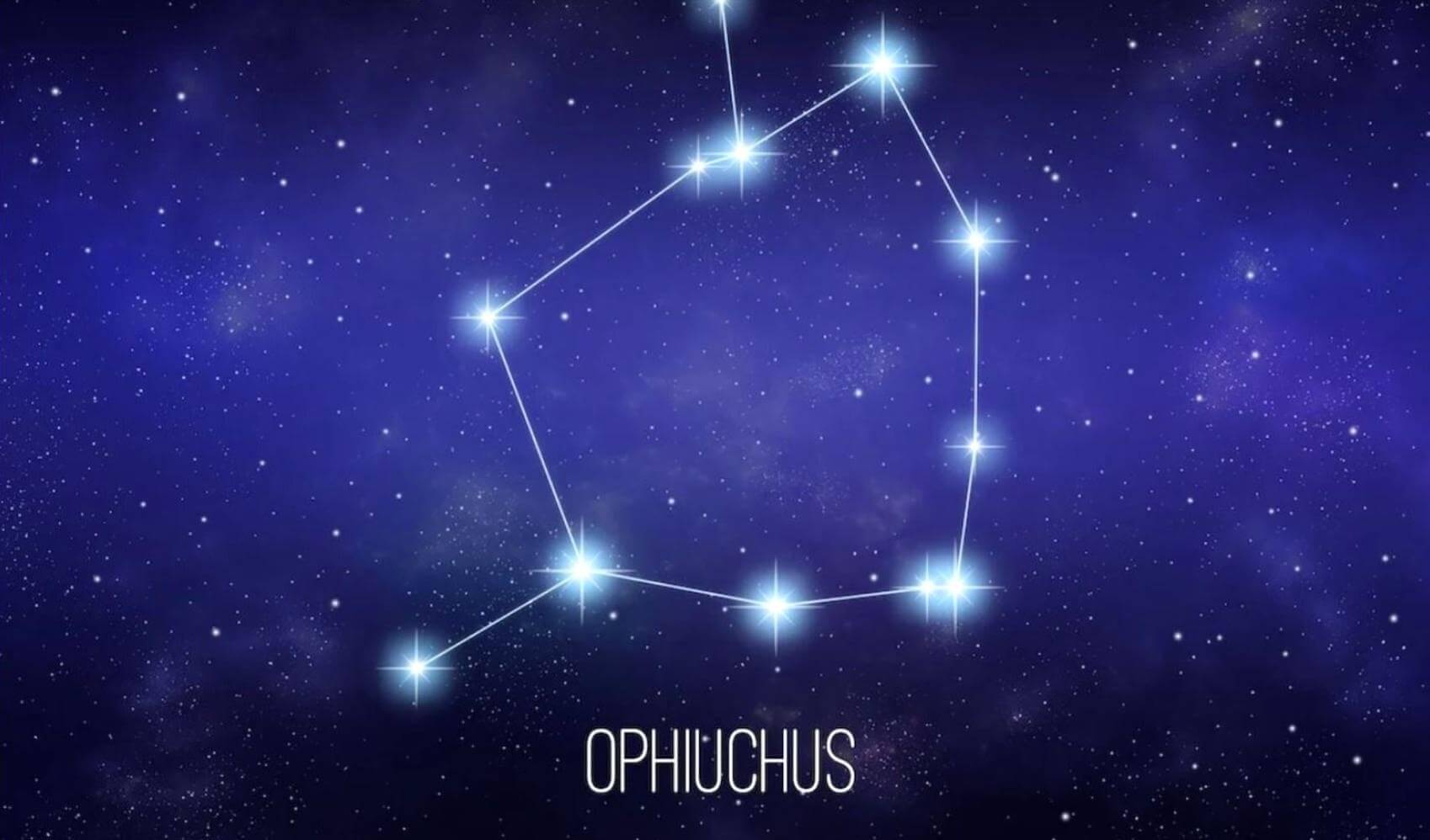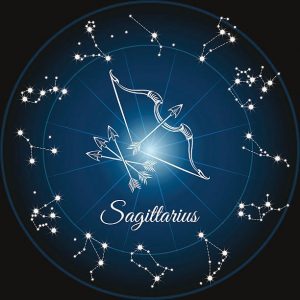In recent years, Ophiuchus has ignited much debate in the astrological community, challenging the longstanding tradition of the 12 zodiac signs. Referred to as the “13th zodiac sign,” Ophiuchus has captivated both astrologers and the public alike. But what is Ophiuchus, and should it truly be considered a part of the zodiac? This article delves into the history, mythology, and astrological significance of Ophiuchus, exploring whether it deserves a place in Western astrology and what its inclusion could mean for our understanding of the zodiac.
The Origins of Ophiuchus: History and Mythology
Ophiuchus, also known as the Serpent Bearer, is one of the 88 recognized constellations in modern astronomy. Its roots in mythology date back to ancient Greece, where it was associated with the god Asclepius, the divine healer. Asclepius, the son of Apollo, was known for his ability to heal and even bring the dead back to life. His close association with serpents—often seen as symbols of rebirth and healing—gave rise to Ophiuchus, a constellation depicted as a man holding a serpent.
The mythology of Ophiuchus highlights themes of healing, transformation, and renewal, making it a powerful symbol. However, despite its ancient origins, Ophiuchus has historically been absent from the zodiac. This exclusion is rooted in the development of Western astrology, which focuses on the 12-sign system that aligns with the Earth’s seasons.
Understanding Ophiuchus as a Constellation
In astronomy, Ophiuchus is a prominent constellation located between Scorpio and Sagittarius. Its position in the sky is undeniable, but it is not traditionally recognized as part of the zodiac. The zodiac belt is a celestial circle that includes 12 constellations through which the Sun appears to travel over the course of a year. Ophiuchus sits just above this belt, intersecting it only slightly, which is why it was not included in the original zodiac system.
Astronomically, the Sun passes through Ophiuchus for about 18 days between November 29 and December 17. However, because Western astrology is based on the Tropical Zodiac—a system that divides the sky into 12 equal parts, corresponding to the Earth’s seasons—Ophiuchus has traditionally been excluded from astrological charts.
Why Ophiuchus Was Excluded from the Zodiac
The zodiac system used in Western astrology was developed thousands of years ago, based on the division of the sky into 12 equal segments, each corresponding to a zodiac sign. These 12 signs were designed to align with the Earth’s annual orbit around the Sun, representing distinct phases of seasonal change. As a result, Ophiuchus, despite its presence as a constellation, was excluded because it did not fit into this neatly organized system.
Additionally, the traditional zodiac signs are tied to ancient agricultural and seasonal cycles, and the number 12 has been symbolically significant across many cultures. Introducing a 13th sign would disrupt the balance and symmetry of the zodiac, which is why Ophiuchus was left out of Western astrology, even though it exists in the same region of the sky.
Characteristics of Ophiuchus: Personality Traits of the 13th Sign
For those who consider Ophiuchus a legitimate zodiac sign, its traits are often described as a combination of Scorpio and Sagittarius energies, since the constellation lies between these two signs. People born under Ophiuchus are thought to possess a unique blend of intensity, curiosity, and wisdom. Some of the personality traits attributed to Ophiuchus include:
- Curiosity: Like Sagittarius, Ophiuchus individuals are naturally curious and have a deep thirst for knowledge. They are always seeking to learn more about the world and themselves, often pursuing higher education or philosophical exploration.
- Intuition: Ophiuchus people are believed to have strong intuition, much like Scorpio. They can sense underlying truths and often have a talent for understanding complex emotions or situations.
- Passion: With Scorpio’s influence, Ophiuchus individuals tend to be passionate and intense. Whether it’s in their relationships, careers, or personal pursuits, they approach life with fervor.
- Transformation: Reflecting the healing and transformative qualities of Asclepius, those born under Ophiuchus are seen as agents of change. They often undergo significant personal growth and transformation throughout their lives, and they may have a natural ability to help others heal.
While these traits may sound intriguing, it’s important to remember that Ophiuchus has not been widely adopted in mainstream astrology, so its personality attributes remain speculative.
The Astrological Debate: Should Ophiuchus Be Considered a Zodiac Sign?
The introduction of Ophiuchus has sparked considerable debate within the astrological community. Some astrologers argue that since Ophiuchus is a legitimate constellation that the Sun passes through, it should be included in the zodiac. This would create a 13-sign zodiac system, which would radically alter traditional astrological charts.
Proponents of Ophiuchus suggest that its inclusion would bring more accuracy to astrology, reflecting the actual constellations in the sky. This perspective aligns with Sidereal Astrology, which is used in some forms of Eastern astrology and is based on the positions of the stars rather than the seasons.
However, many Western astrologers reject the idea of including Ophiuchus. They argue that the 12-sign zodiac is based on the Earth’s seasonal cycle and that changing it to 13 signs would undermine the system’s symbolic and practical coherence. The Tropical Zodiac, which is the foundation of Western astrology, divides the sky into 12 equal segments, not based on the constellations but on the equinoxes and solstices. Therefore, adding Ophiuchus would disrupt the balance of the system and create confusion.
The Impact of Ophiuchus on Existing Zodiac Signs
If Ophiuchus were officially adopted into the zodiac, it would cause a significant shift in the astrological calendar. The addition of a 13th sign would mean that the dates for each zodiac sign would need to be adjusted, pushing the dates of all other signs backward by about one month. For example, someone who has always identified as a Sagittarius may find that their Sun sign has shifted to Ophiuchus or even to Scorpio.
This change could alter the way people perceive their own astrological identities, leading to confusion or resistance from those who have long felt connected to their zodiac sign. However, for some, this shift could also open the door to new self-discovery, allowing them to explore the characteristics of a different sign or even incorporate traits from both their traditional sign and Ophiuchus.
Ophiuchus in Modern Western Astrology
Despite the controversy, some modern astrologers have begun to explore the potential role of Ophiuchus in their readings. These astrologers view Ophiuchus as a sign of spiritual transformation and growth, a symbol of healing and the ability to embrace change. In this interpretation, Ophiuchus represents the journey toward enlightenment and personal development, much like the mythical figure of Asclepius who sought to heal and revive.
While Ophiuchus has not been fully integrated into mainstream astrology, it has gained popularity among certain groups, particularly those looking for alternative approaches to zodiac interpretation. Some astrologers who incorporate Ophiuchus into their practice see it as a sign that can help people better understand their spiritual path, especially in times of personal transformation or challenge.
Ophiuchus and the Precession of the Equinoxes
One of the main arguments for the inclusion of Ophiuchus in the zodiac is based on the precession of the equinoxes. This is a phenomenon that occurs due to the gradual wobble of the Earth’s rotational axis, which causes the positions of the constellations to shift over time. Because of this precession, the Sun’s position relative to the constellations has changed over the past 2,000 years.
Some astrologers argue that the precession of the equinoxes means that the traditional 12-sign zodiac is no longer accurate. They believe that astrology should be updated to reflect the actual positions of the constellations, including Ophiuchus, rather than relying on the fixed positions used in the Tropical Zodiac.
However, traditional Western astrologers counter this argument by pointing out that the zodiac used in astrology is not based on the constellations themselves but on the Earth’s relationship to the Sun and the seasons. Therefore, while the precession of the equinoxes is an important astronomical event, it does not necessarily impact the astrological zodiac.
Comparing Ophiuchus to Other Zodiac Signs
Ophiuchus is often compared to its neighboring zodiac signs, Scorpio and Sagittarius, due to its placement in the sky. People born under Ophiuchus are believed to share traits with both signs, blending Scorpio’s intensity and passion with Sagittarius’s quest for knowledge and adventure.
- Scorpio vs. Ophiuchus: Scorpio is known for its deep emotional intensity, mystery, and transformative power. Ophiuchus, like Scorpio, is associated with transformation, healing, and rebirth. Both signs are linked to the concept of personal growth through challenges, but Ophiuchus is said to focus more on spiritual healing and enlightenment.
- Sagittarius vs. Ophiuchus: Sagittarius is an optimistic and adventurous sign, always seeking new knowledge and experiences. Ophiuchus shares Sagittarius’s love of learning and curiosity about the world but also brings in a more introspective and transformative element. While Sagittarius is outwardly focused on exploration, Ophiuchus is more concerned with internal growth and the pursuit of wisdom.
In this way, Ophiuchus serves as a bridge between Scorpio and Sagittarius, incorporating traits from both signs while adding its own unique emphasis on healing and transformation.
How to Interpret Your Horoscope with Ophiuchus
If you’re curious about how Ophiuchus might influence your horoscope, the first step is to determine whether your birthdate falls within Ophiuchus’s dates (typically November 29 to December 17). If so, you may want to explore the traits associated with Ophiuchus and see how they resonate with your personality and life experiences.
For those who feel a connection to both their traditional zodiac sign and Ophiuchus, it can be helpful to combine the traits of both signs in your astrological interpretation. For example, if you were born on the cusp of Scorpio and Ophiuchus, you might identify with Scorpio’s intensity and Ophiuchus’s transformative energy.
Ultimately, how you choose to incorporate Ophiuchus into your astrological practice is a personal decision. Some people may feel a strong affinity with Ophiuchus and see it as a reflection of their spiritual journey, while others may prefer to stick with the traditional 12-sign system.
Conclusion: The Evolving Role of Ophiuchus in Astrology
The debate over Ophiuchus’s place in the zodiac highlights the dynamic and evolving nature of astrology. While Ophiuchus has not been widely adopted in traditional astrology, its presence continues to spark discussions about how astrology can adapt to new astronomical knowledge. Whether you view Ophiuchus as a legitimate zodiac sign or simply as an interesting constellation, its mythology and symbolism offer valuable insights into the themes of healing, transformation, and spiritual growth.
As astrology continues to evolve, Ophiuchus serves as a reminder that the stars and planets are ever-changing, and our understanding of the cosmos is always open to new interpretations.
FAQ: Common Questions About Ophiuchus in Astrology
Q: Is Ophiuchus a real zodiac sign?
A: Ophiuchus is a real constellation that the Sun passes through, but it is not traditionally included in the 12-sign zodiac system used in Western astrology.
Q: How would adding Ophiuchus change my zodiac sign?
A: If Ophiuchus were added to the zodiac, it would shift the dates of all zodiac signs, potentially changing your Sun sign if you were born near the affected period.
Q: Why wasn’t Ophiuchus part of the original zodiac?
A: The original 12-sign zodiac was based on equal divisions of the sky and the Earth’s seasonal cycle, rather than the actual number of constellations. Ophiuchus was excluded because it did not fit into this system.
Q: What are the personality traits of Ophiuchus?
A: Ophiuchus individuals are often seen as intuitive, passionate, curious, and transformative, with a strong desire for knowledge and personal growth.
Q: Can Ophiuchus be included in modern astrology?
A: While Ophiuchus has not been widely adopted in mainstream astrology, some modern astrologers are incorporating it into their readings, particularly for its symbolism of healing and transformation.
- Mata Hari
https://astronomologer.com/mata-hari/ - Five of Disks, Mercury ruled decan of Taurus
https://astronomologer.com/five-of-disks-mercury-ruled-decan-of-taurus/ - Love is a learning game
https://astronomologer.com/love-is-a-learning-game/





